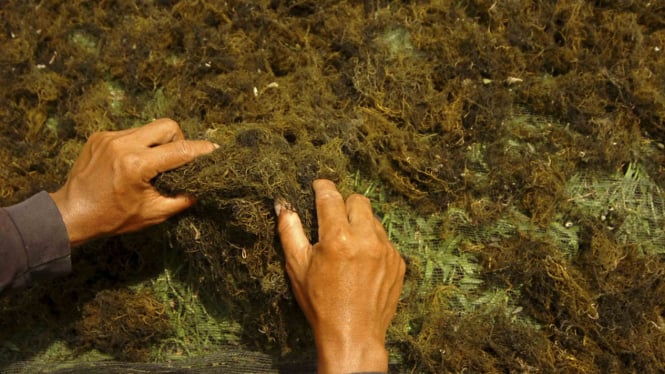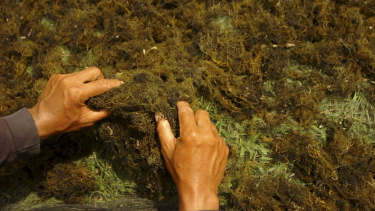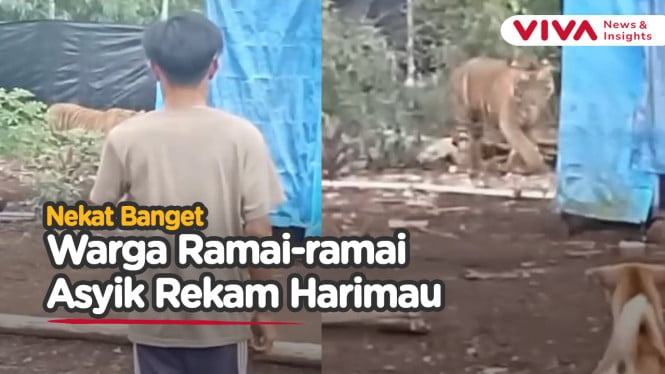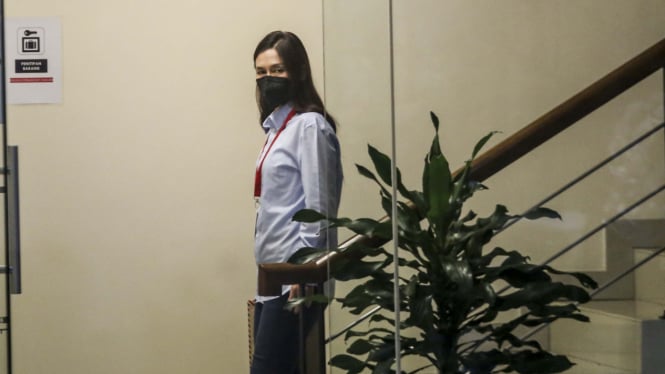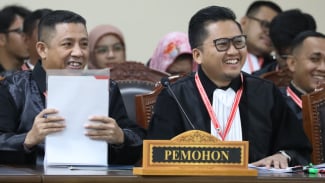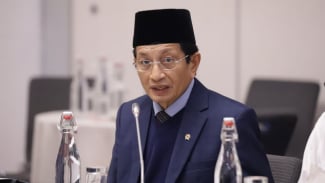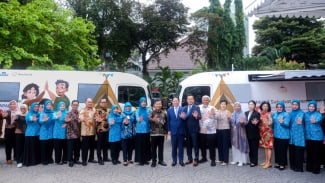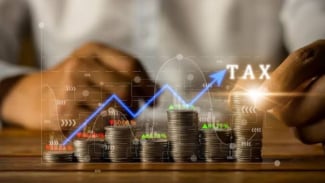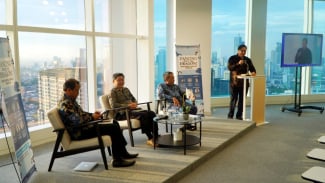President Jokowi Urges Fisheries Ministry to Downstream Seaweed
- ANTARA FOTO/Oky Lukmansyah
VIVA – The Indonesian President Joko Widodo (Jokowi) urged the Ministry of Maritime Affairs and Fisheries to carry out the downstream of seaweed products by establishing pilot projects in Bali, Southeast Sulawesi, Maluku, East Nusa Tenggara, West Nusa Tenggara.
This was stated by Maritime Affairs and Fisheries Minister Sakti Wahyu Trenggono through press conference, on Thursday, at the Presidential Palace.
"The President has given us the target of building pilot projects in Buleleng (Bali province), Wakatobi (Southeast Sulawesi province), Southeast Maluku (Maluku province), Rote Ndao (East Nusa Tenggara province), and in West Nusa Tenggara (NTB) province," Trenggono said.
According to him, Indonesia has enormous potential (with a seaweed cultivation area) of 12 million hectares or more. However, only 0.8 percent of the area has been utilized, with a total production of around 9 million tons in 2021.
Kementerian Kelautan dan Perikanan / KKP.
- vivanews/Andry Daud
Apart from optimizing the potential of seaweed cultivation areas, the government is also trying to build pilot projects to develop various derivative products from seaweed, he said.
"There are many derivative products from seaweed which we can make, including fertilizers, food, animal feed, pharmaceuticals, biofuels, and many others," he added.
According to the Maritime Affairs and Fisheries Ministry, Indonesia’s seaweed export volume reached 225 thousand tons in 2021, or 30 percent of the total volume of global seaweed exports, making Indonesia the largest seaweed exporter by volume.
The total export value of the commodity during the period was US$345 million or around IDR 5 trillion.
Processed seaweed can be used in both food and non-food industries.
In food manufacturing, several derivative products from seaweed - such as carrageenan, agar, and alginate - are used as food additives in bread, meatballs, nuggets, syrup, ice cream, yogurt, juice, and jelly.
Meanwhile, in the non-food industry, seaweed can be used to make paints, textiles, toothpaste, lotions, face masks, face cream, body scrubs, soaps, and shampoos.
Seaweed is one of the five priority commodities that are being developed by the ministry, apart from shrimp, lobster, crab, and tilapia.
The Maritime Affairs and Fisheries Ministry targets domestic aquaculture products to dominate the export market in 5 to 10 years.
